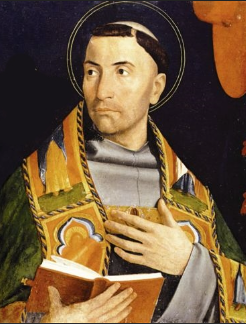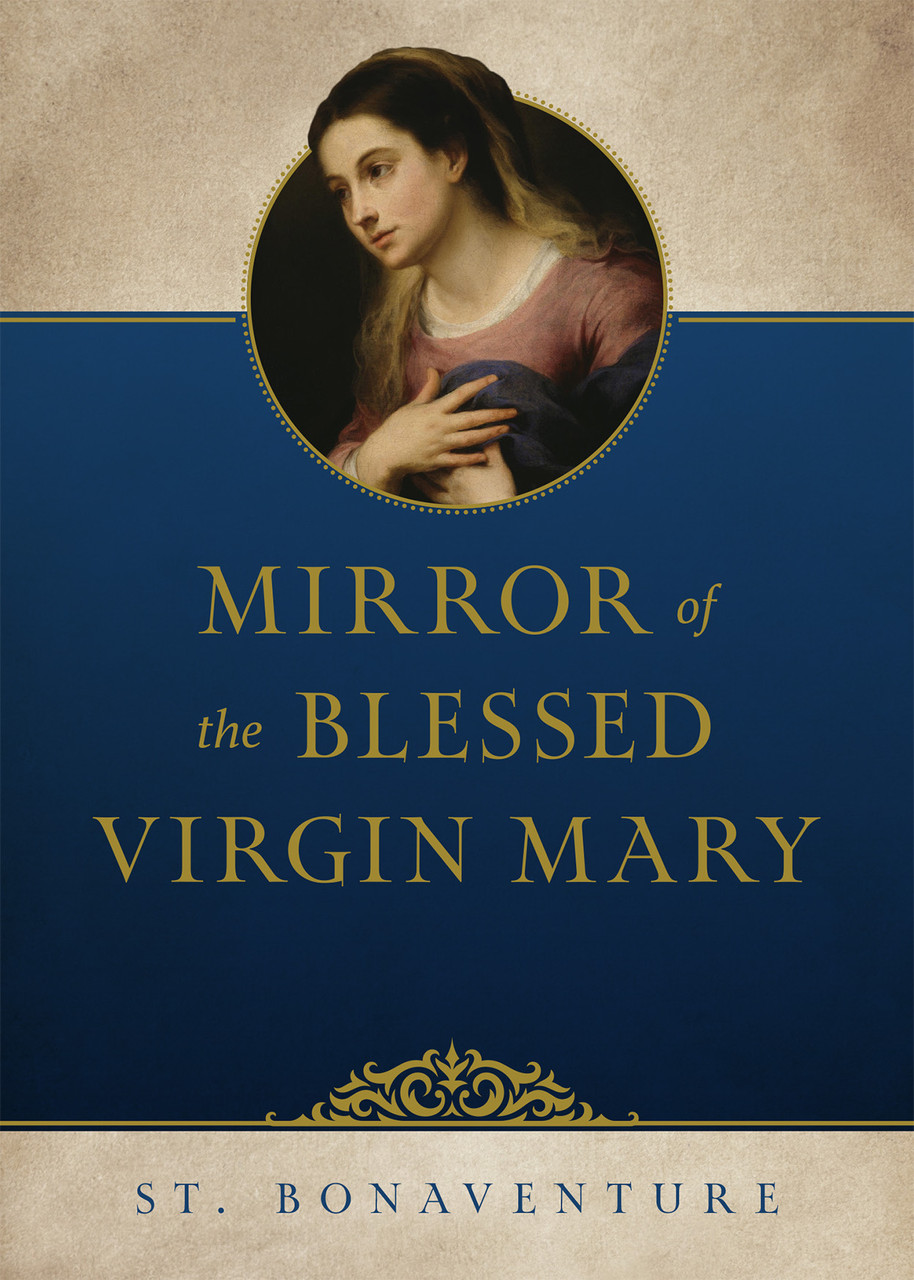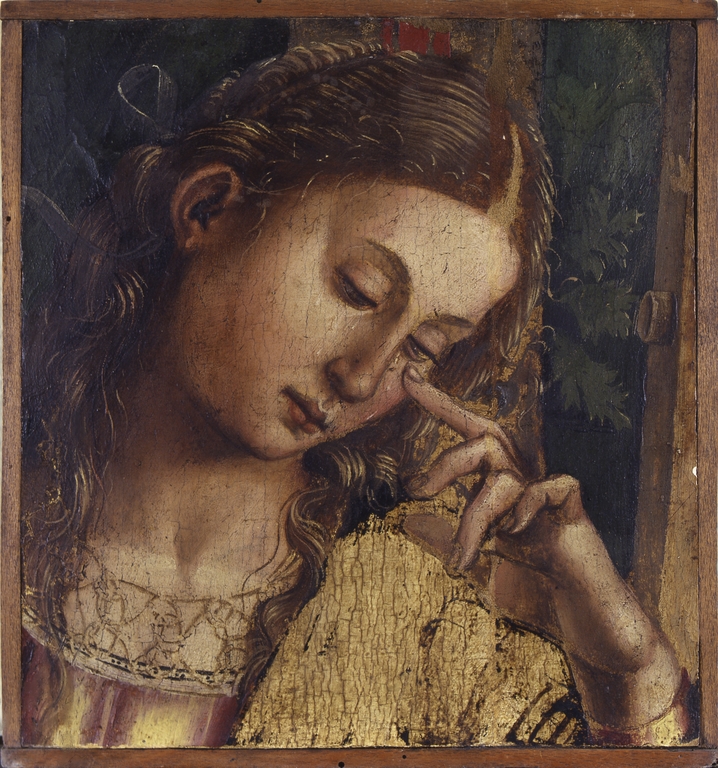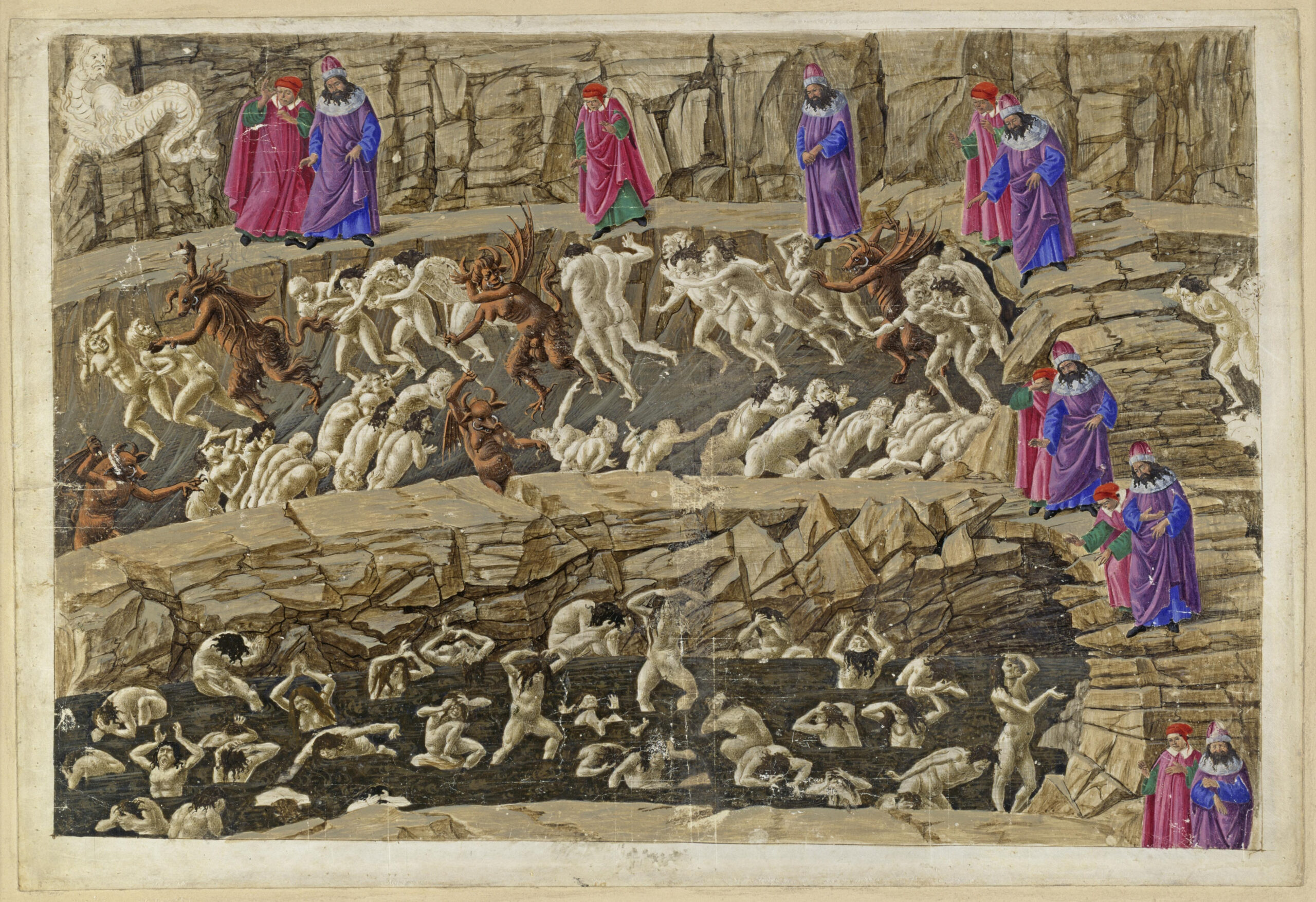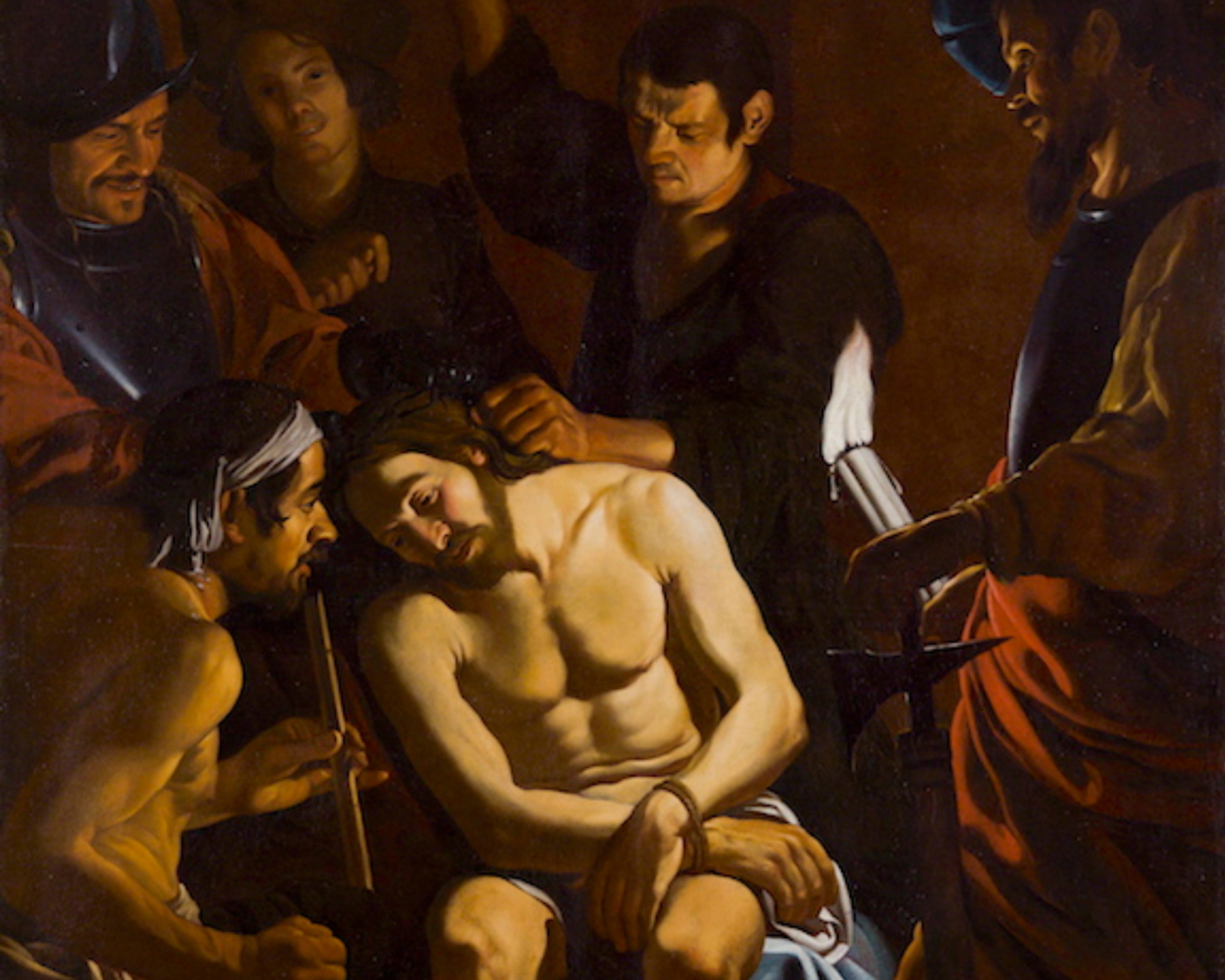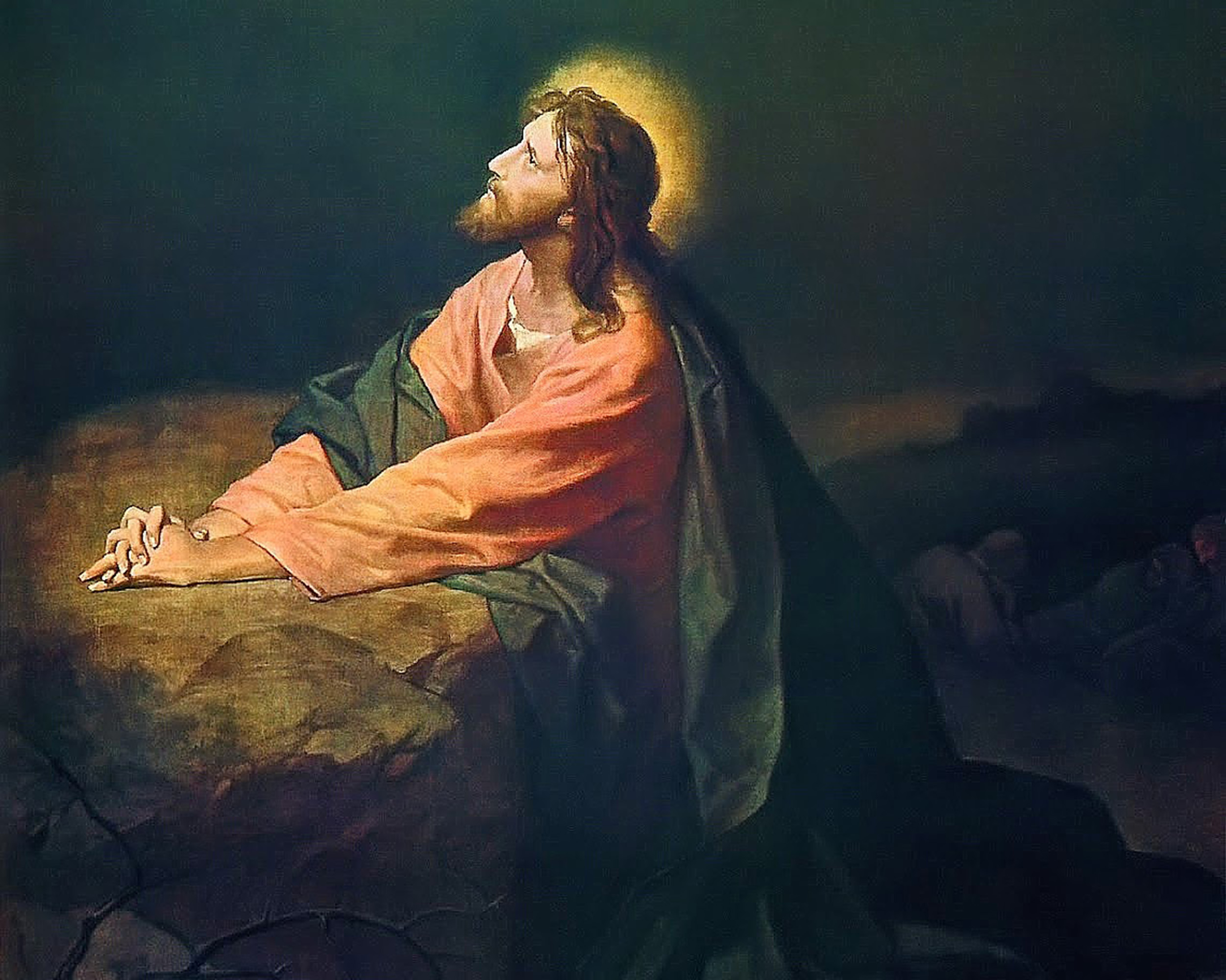The Seraphic Doctor, Saint Bonaventure, offers a profound examination of Mary’s graces, sanctity, and heavenly role in Mirror of the Blessed Virgin Mary. Read on for a harrowing meditation on the woes of sin which all mankind but Mary and Jesus face.
Guilt
First, the woe of guilt is threefold, i.e., the woe of the guilt of the heart, of the guilt of the lips, and of the guilt of deeds. On account of these three woes it may be said: “Woe, woe, woe to the inhabitants of the earth!”
Of the Heart
Woe, therefore, to sinners because of the guilt of the heart, as it is said in Isaias: “Woe to you who are of a deep heart, that ye hide counsel from the Lord.” Woe, indeed, to those who are of a deep heart unto evil, for the deep hearts of evil-doers are haunts of the devils, and sepulchers full of the filth of vice.
Oh, how far from this woe was the most innocent heart of Mary, as St. Bernard says: “Mary had no fault of her own, and far from her most innocent heart was repentance.” Of what could the heart of Mary repent when she had never admitted into it anything worthy of penance? Therefore, her pure heart was not the haunt of the devil, nor the sepulcher of vice. Rather, it was a garden and a paradise of the Holy Ghost.
Of the Lips
Again, woe to sinners because of the guilt of the lips, as it is said in Isaias: “Woe to you who call evil good, and good evil.” Woe to these, woe to all who sin by the lips, as is said in the Psalms: “The poison of asps is under their lips.” Oh, how far from this woe was the most innocent mouth of Mary! Therefore Blessed Ambrose says: “There was nothing evil in the eyes of Mary; nothing prolix in her words, nothing forward in her deeds.” On the lips of Mary there was nothing of the gall and poison of the devil, but the honey and milk of the Holy Ghost.
Of Deeds
Again, there is woe to sinners because of the guilt of their deeds, as it is said in Ecclesiasticus (II, 14): “Woe to the double heart and the wicked lips, and to the hands that do evil.” Woe to the double heart, for the guilt of the heart; woe to the wicked lips, for the guilt of the lips; woe to the hands that do evil, for the guilt of their deeds. Oh, how far removed from such a woe was every deed of Mary and the whole of her life! Therefore St. Bernard saith: “It behoved the Queen of Virgins, by a singular privilege of sanctity, to lead a life entirely free from sin, that while she ministered to the Destroyer of death and sin, she should obtain the gift of life and justice for all.”
Misery
The woe of the misery of being born is the woe of the weakness of concupiscence; the woe of them that bring forth is the woe of the pains of travail; the woe of the dying is the misery of being reduced to dust and ashes. Because of these three woes is it said to the inhabitants of the earth: “Woe, woe, woe to the inhabitants of the earth!”
Of Birth
The woe of those who are born is the woe of the fuel of sin which is born in us, by which, according to our original corruption, we are so weak unto good and so prone to evil; so that each one is born with the “fomes peccati,” and by this is weak and wounded, and can truly say with Jeremias: “Woe is me for my destruction, my wound is very grievous. But I said, truly this is my own evil, and I will bear it” (Jer. X, 19.) Oh, how far from this woe of them that are born was the most holy Nativity of Mary, who was not only free from original sin, but also from the fuel of misery, in so far as it leads to sin, for she was conceived without stain.
Of Giving Birth
Again, the misery of them that bring forth is that original curse pronounced against Eve, “Thou shalt bring forth children in sorrow” (Gen. III, 16.) On account of this woe it may be said to all who bring forth what the Lord said to some amongst them: “Woe to them that are with child and bring forth in those days” (Matt. XXIV, 19.) Oh, how far from this woe was Mary when she conceived and brought forth, as St. Augustine testifies, saying: “Oh, how blessed is that Mother who without stain conceived Purity, and without pain brought forth Healing.” Because she was so far from this woe of them that bring forth, therefore is Mary saluted with Ave.
Of Death
Again, the misery of them that die is the woe of dissolution into dust, which was imposed upon man when it was said to the sinner: “Dust thou art, and unto dust thou shalt return” (Gen. III, 19.) Hence of those that are born and those that die, can be said that word of Ecclesiasticus: “Woe to you, ungodly men, who have forsaken the law of the most high Lord, and if you be born, you shall be born in malediction: and if you die, in malediction shall be your portion” (Eccli. XLI, 11 f.) Oh, how far from this dissolution was the body of Mary, as we universally believe. For this body was the most holy Ark of God, to which corruption was unbecoming, but which, according to the likeness of her Son, should rise again, before any taint of corruption could infect it.
Hell
Woe, therefore, to the damned and to those who will be damned, because of the greatness, the multitude, and the duration of their torments! “Woe, woe, woe to the inhabitants of the earth!” First, there is the greatness of the torments, as Ezechiel saith: “Woe to the bloody city, of which I will make a great bonfire” (Ezech. XXIV, 9.)
Of the Greatness of Torments
The bloody city is the multitude of the impious, of whom there will be an immense bonfire made in the great conflagration of the damned. Oh, how far removed from this woe of greatness of torment was the greatness of the grace and glory of Mary, for whom, instead of the grievous torments of hell, was prepared by God so great a glory in Heaven, and as she was great and garbed in merit, so is she great in her reward.
Of the Multitude of Torments
Isaias says: “Woe to their souls, for evil things are rendered to them” (Is. III, 9.) He says, evil things, in the plural, because there are many, yea, infinite evils rendered to evil-doers in hell. But to Mary, in contradistinction to the many evils prepared for the damned in hell, God hath prepared many good things in Heaven. No angel, no saint, can equal her in the multitude and accumulation of heavenly good things.
Of the Duration of Torments
In the Epistle of St. Jude it is said: “Woe to them, for they have gone in the way of Cain and after the error of Balaam, and have perished in the contradiction of Core.” And a little further on: “to whom the storm of darkness is preserved forever” (Jude XI, 12.) Note that he says, forever, and think how great is the duration of these pains and of the darkness which will have no end. But against this eternal darkness in hell the Lord has prepared for Mary eternal light in Heaven, so that, as the sinful soul, the throne of the devil, will be miraculously dark forever, Mary, the Mediatrix, the throne of Christ, will be marvelously luminous forever.
ooo
This article is taken from a chapter in Mirror of the Blessed Virgin Mary by Saint Bonaventure which is available from TAN Books.


